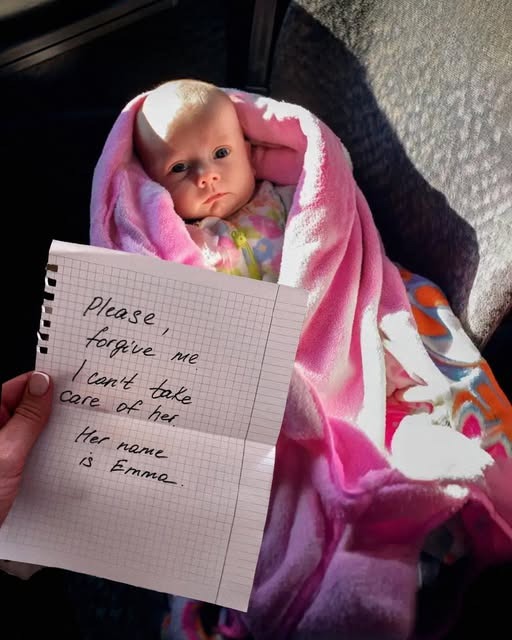There is a unique stillness that settles over a city bus in the deep of night. The passengers are few, the lights are dim, and the world outside seems to hold its breath. It was during this quiet time, as I prepared to park my bus for the evening, that I heard a sound that seemed entirely out of place—a soft, mewling cry from the back of the vehicle. Assuming it was a forgotten kitten, I made my way toward the sound. What I discovered, however, was a human child, a baby girl left alone on the cold vinyl seat, wrapped in a thin blanket that was stiff with frost. Her skin was icy to the touch, and a primal fear gripped me. There was no time for questions; action was all that mattered as I rushed her away from the freezing darkness.
The warmth of my home became a sanctuary. My mother and I worked tirelessly through the night, becoming a team united by a single purpose. We used warmed towels and our own body heat to chase the cold from her small body. We discovered a brief note that named her Emma and spoke of a love overshadowed by despair. As we fed her and watched her cling to life, a powerful bond formed in that small, warm room. By sunrise, she was breathing easily, and the paramedics who collected her assured us she would make a full recovery. The emptiness they left behind was palpable; the house felt too large and too quiet without her.
For the next several days, my thoughts were consumed by the baby and the mysterious circumstances that led her to my bus. I wondered about the person who had left her, imagining their fear and their fragile hope that someone would find her in time. My questions were answered sooner than I expected. A few mornings later, a car that looked like it belonged on a movie star’s driveway—a majestic Rolls-Royce—pulled up to my curb. The man who stepped out was Emma’s grandfather. He shared with me that his daughter had been in a dark place, but seeing the news of her daughter’s rescue and the compassion surrounding it had given her the courage to come forward and get the help she desperately needed.
His visit was not just an explanation; it was a closure. He presented me with a letter and a token of their family’s immense gratitude. The financial support was a life-changing surprise, but the words in that note will stay with me forever: “You didn’t just save Emma — you saved our hope.” He told me Emma was now thriving in a stable, loving home. The experience taught me that stories are rarely simple. What began as a tragic act of abandonment transformed into a story of redemption and connection. To this day, I always check the back seat of my bus, not with dread, but with the quiet knowledge that hope can be found in the most unexpected places.


